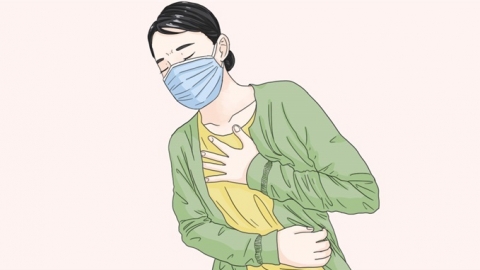What are the symptoms of mycoplasma pneumonia?
Generally, mycoplasma pneumonia is an acute lung inflammation caused by Mycoplasma pneumoniae, with main symptoms including fever, cough, chest pain, headache, and difficulty breathing. A detailed analysis is as follows:

1. Fever
After infecting the human body, Mycoplasma pneumoniae activates the immune system. The immune system releases endogenous pyrogens such as interleukin-1 and tumor necrosis factor. These substances act on the hypothalamic thermoregulatory center, raising the body's temperature set point, thereby causing fever, often accompanied by chills and fatigue.
2. Cough
Mycoplasma pneumoniae invades the respiratory mucosa, causing mucosal damage and an inflammatory response, which leads to coughing. The cough is usually paroxysmal, irritating, and choking in nature, accompanied by small amounts of mucus. The cough may be quite severe, especially at night, potentially affecting the patient's sleep.
3. Chest Pain
Inflammation caused by mycoplasma infection involving the pleura stimulates the pleura, causing chest pain. When coughing or taking deep breaths, the friction of the pleura increases, intensifying the chest pain. The pain is typically described as sharp or a pulling sensation.
4. Headache
Infection with Mycoplasma pneumoniae may stimulate the nervous system, causing abnormal responses that lead to headaches. Additionally, fever can also cause headaches, as elevated body temperature increases cerebral vascular dilation and pulsation, which can trigger headaches.
5. Difficulty Breathing
When mycoplas pneumonia leads to extensive pulmonary inflammation, it impairs the gas exchange function of the lungs. Oxygen cannot effectively enter the bloodstream from the alveoli, and the removal of carbon dioxide is also hindered. This stimulates the respiratory center, increasing respiratory rate and depth. Patients may feel short of breath,表现为 rapid breathing and wheezing.
Mycoplasma pneumonia presents with a variety of symptoms. If any of the above symptoms appear, prompt medical attention and professional treatment are necessary.








